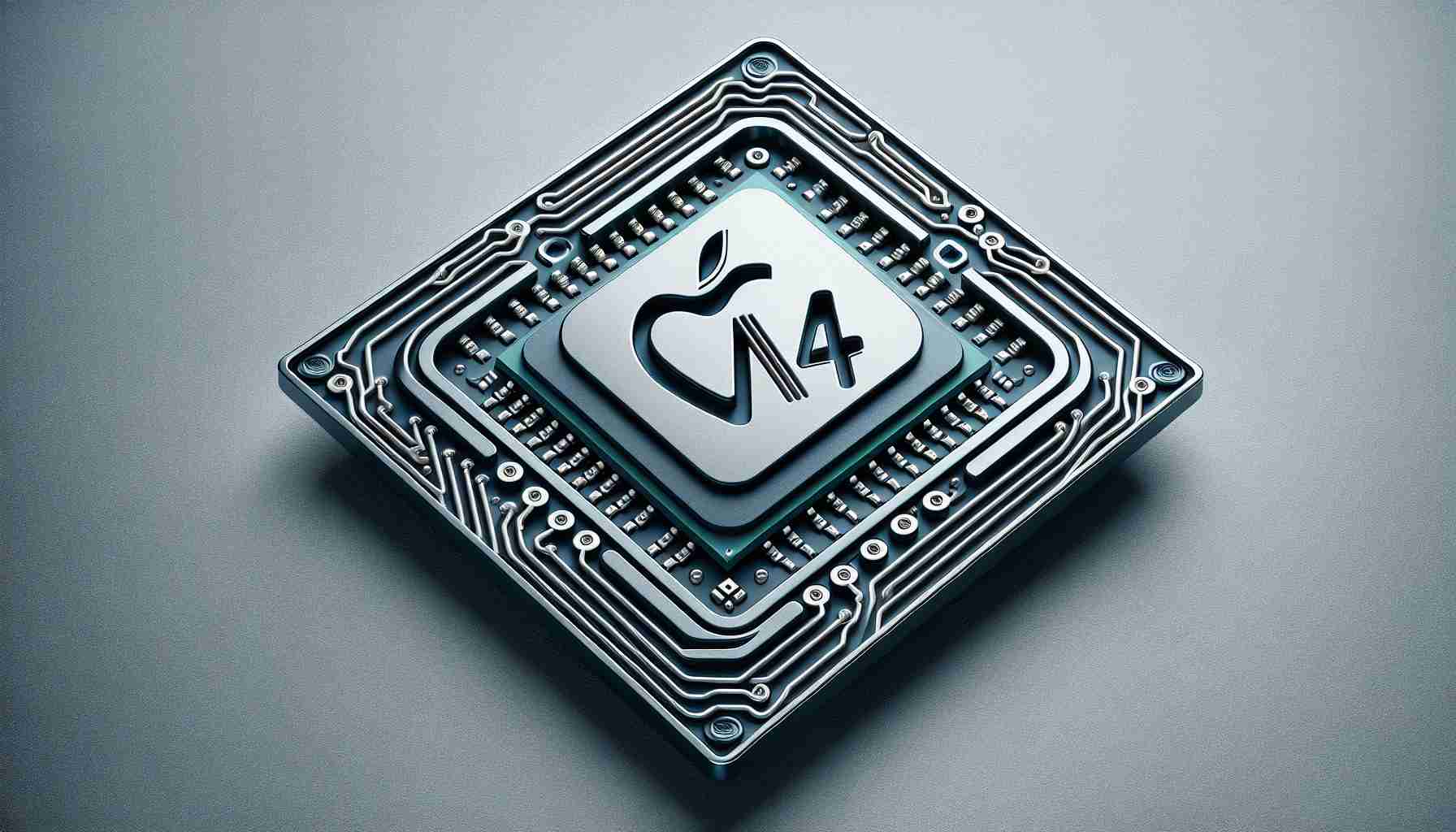In an ambitious bid to revitalize its Mac product line amid slowing sales, Apple Inc. is reportedly on the verge of introducing a new era of Mac computers powered by their proprietary M4 processors. These chips are expected to thrust artificial intelligence capabilities to the forefront of Apple’s computing technology.
After observations of declining Mac sales, which dropped by 27% in the previous fiscal year, and stagnant revenues during the holiday season, Apple has been escalating efforts to reinvigorate its Mac lineup. This comes after the muted impact of the M3 chips released last October, which showed little advancement from their M2 predecessors.
The tech giant’s strategy involves equipping every model in its Mac family with the upcoming M4 chip, which is projected to be available in three main versions. Apple intends to underscore the AI processing potential of these components, aligning with its larger goal of embedding AI features across all its offerings.
An array of Mac products, including new iMacs, various MacBook Pro models, and Mac minis, are slated to receive the M4 update starting late this year and into the next. This rapid refresh follows recent updates to the same product lines, positioning Apple for a continuous technological initiative well into 2025.
Apple’s M4 chipset encompasses a variety of processors for different tiers, from the entry-level Donan to the most formidable Hidra chip. Notably, Apple plans to allow its top-tier Mac desktops to potentially support up to half a terabyte of memory, a substantial leap from the current ceiling of 192 gigabytes.
Behind Apple’s push for an in-house chip ecosystem is the well-established Apple Silicon initiative, which harmonizes the company’s hardware and software. With a track record of enhancing performance and supporting sleeker, more efficient designs, Apple’s Arm-based architecture is a cornerstone for progress that started with the iPhone and iPad and has since revolutionized Mac technology.
With high anticipation, extensive features leveraging artificial intelligence are anticipated to be showcased at Apple’s June developer conference, highlighting the tech giant’s commitment to self-reliance and innovation.
Apple’s Strategic Shift to M4 Processors Amidst Mac Sales Decline
The consumer electronics and personal computer market has always been competitive, with constant advancements and innovations required to maintain relevance and market share. Apple Inc. is no stranger to this need for incessant evolution and is reportedly poised to tackle challenges head-on by launching a new generation of Mac computers powered by its self-crafted M4 processors.
The introduction of M4 chips represents Apple’s endeavor to revamp its Mac lineup following a discernible downturn in sales. Mac sales notably diminished by 27% in the last fiscal year, spurring the company to rekindle consumer interest through cutting-edge technology with an emphasis on artificial intelligence. In light of this, the M3 chips, which had a lukewarm reception due to incremental improvements over their M2 counterparts, have spurred the need for a more impactful update.
Apple‘s overarching strategy includes the integration of the M4 chip across its range of Mac products, including iMacs, MacBook Pros, and Mac minis. The decision to upgrade the entire lineup underscores the company’s efforts to not only recover sales momentum but to establish a solid foothold in the realm of AI-powered computing.
The M4 chip line-up presents a hierarchy of processors targeted at varying user needs, from entry-level to high-end performance demands. In particular, Apple’s strategy to support up to half a terabyte of memory in its premium models reveals a commitment to delivering uncompromised power to the most demanding of users.
The industry-wide shift towards AI integration presents both opportunities and challenges for market players. Apple, with its proprietary chips, is setting its sights on a future where computing is seamlessly intertwined with intelligent operations. This is a space that is rapidly expanding, with market forecasts predicting significant growth in AI capacities across multiple platforms.
Issues plaguing the industry include concerns over compatibility, energy efficiency, and the ever-present threat of hackers exploiting increasingly smart devices. Apple’s Silicon initiative aims to address these concerns by bringing hardware and software collaboration to new heights, a practice that has demonstrated success in its iPhone and iPad product lines and is a logical progression for Macs.
Besides leveraging internal chip developments, Apple’s vision extends to enabling developers to tap into these advanced AI capabilities. The forthcoming June developer conference is expected to be a critical moment for Apple to showcase its innovation prowess and the potential of AI within the Mac ecosystem.
For more information on the topic, reliable technology news can often be found on Apple’s official website, as well as other tech-centered platforms.
As the market for AI-enhanced computers grows, Apple’s reimagining of the Mac could not only catalyze a turnaround in sales performance but also set a new benchmark for the integration of artificial intelligence in personal computing. The industry awaits with keen interest the full implications of these advancements on both productivity and creative capabilities for users worldwide.

